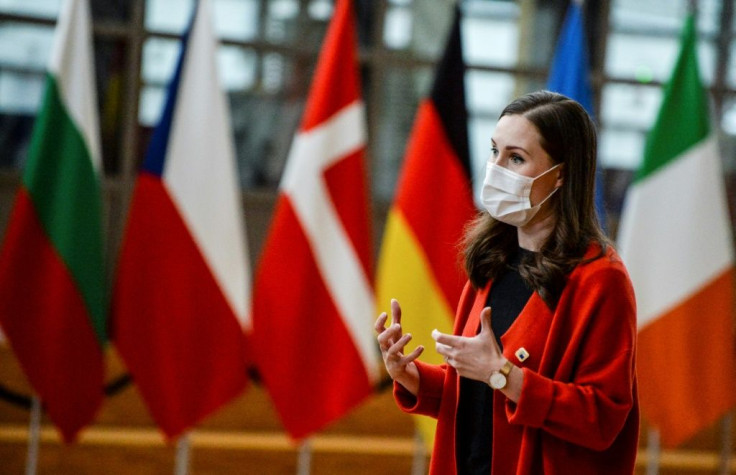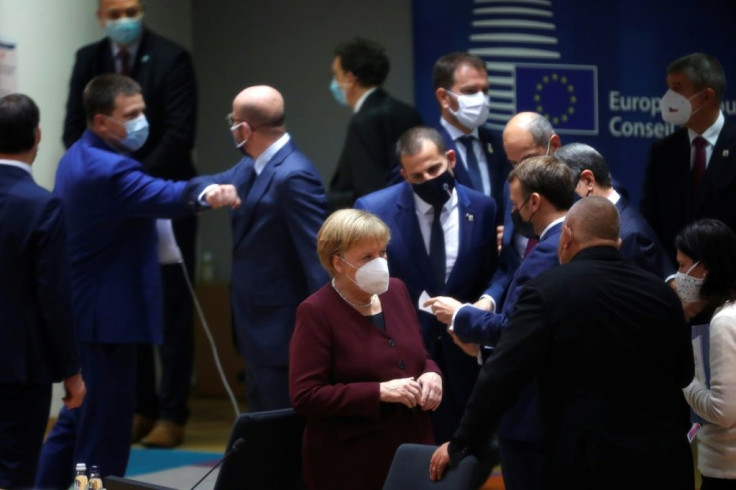Covid Scares Put EU Leader Summits In Peril
Should Brussels return to virtual EU summits?
The debate was relaunched this week after Commission President Ursula von der Leyen and Finnish Prime Minister Sanna Marin left an EU leaders meeting largely devoted to Brexit to go into self-isolation.
Several times a year the bloc's 27 leaders meet in Brussels to argue over a wide gamut of policies, with intense negotiations that can go deep into the night.

The meetings involve hundreds of officials, large security details and include top civil servants squeezing into small conference rooms to sweat over the latest EU compromise.
But, with the continent facing a dizzying acceleration of Covid-19 cases, Danish Prime Minister Mette Frederiksen expressed her reluctance to make the trip at the start of the meeting in Brussels on Thursday.
"This meeting should have been organised in the form of a videoconference," she said as she stepped off the plane.
The head of the Polish government, Mateusz Morawiecki, who was already in quarantine following contact with an infected person, was absent.

Von der Leyen on Thursday and then Sanna Marin on Friday left the discussion table after learning that they too had been in contact with people testing positive for Covid-19.
During the worst of the first wave of the virus, between March and June, several summits were held by videoconference.
Germany's Angela Merkel has defended the resumption of physical summits, officials said, but after this week's meeting she did cancel a plan to hold an informal leaders' summit in Berlin on November 16.

But the President of the European Council, Charles Michel, who hosts EU summits, stressed that "for certain issues a physical presence is essential for taking decisions".
"This is what happened in July", when a 750-billion-euro recovery plan was adopted after marathon discussions and a multitude of small meetings.
This time, "the Brexit debate did indeed require a physical presence", added the former Belgian Prime Minister, stressing that many leaders wanted this.
Physical meetings were defended by Merkel, Spain's Pedro Sanchez, Bulgaria's Boiko Borissov, Luxembourg's Xavier Bettel and Portugal's Antonio Costa, according to a European source.
"For the future we will assess ... what are the best ways of working in view of this Covid crisis", Michel added.
France's former representative to the EU, Pierre Sellal, stressed in March that "it is extremely difficult, if not impossible, to engage in a real collective debate with 27 members via video".
But "by forcing concision, a virtual meeting can be very effective", he noted.
As for the media, they have been kept physically away from European summits since the pandemic.
Video and photo pools are organised but all press conferences are held online.
© Copyright AFP 2024. All rights reserved.





















